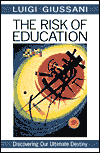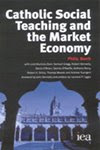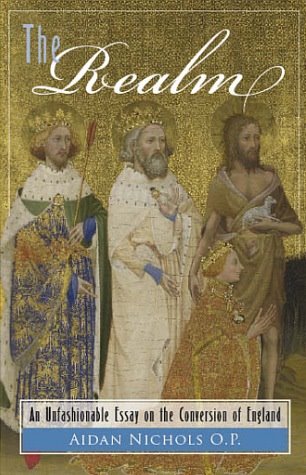Who was Athanasius?
Athanasius was Bishop of Alexandria in Egypt in the 4th century, and of course I am only borrowing his name.
Athanasius was the greatest champion of Catholic belief on the subject of the Incarnation, and in his lifetime was called the "Father of Orthodoxy”. His lifetime coincided with outbreak of the Arian heresy, the Council of Nicaea, and a long period of political instability in the Roman Empire.
He was born sometime around 296. His intellectual gifts and religious sense apparently marked out for the priesthood from an early age. The Alexandria of the time was the intellectual centre of the Roman Empire, and the capital of theological learning of the Catholic Church. Athanasius imbibed this environment of classical scholarship under the mentorship of Bishop Alexander. His early writings included studies of the Incarnation, in which he defended the traditional Catholic view of Jesus’ divinity. These writings seem to have been prompted by a new and growing tendency to question this teaching. Athanasius detected this tendency early, and was one of the first to recognise the threat it posed to a meaningful belief in God’s commitment to humanity.
There was a great deal at stake in the doctrine of the Incarnation. Catholics had always maintained that Jesus was truly the Son of God, and truly divine. They never separated Jesus from the Father, whose Word He was and always had been. The full divinity of Jesus, co-equal with the Father, was the lynch-pin of Christian belief because it demonstrated that God spared nothing in His love for us, giving us His very self. The Incarnation of the Son as a simple carpenter made God present and available to all of humanity, not just to a self-appointed spiritual elite.
The logical corollary was that we should value each other as we are valued by God. This belief is the foundation stone for every concept of human rights and equality before the law over the last two thousand years. No Incarnation, then no John Locke, no "all men are created equal", and no liberal democracy.
This belief had its opponents then as it does now, and for similar reasons. For a particular kind of person, it is just self-evident that God cannot have anything directly to do with the sordid details of our existence. Why God would be so concerned with their sense of propriety is never really explained.
Earlier in the Church’s history, the Gnostic movement had attempted to sever the link between God and man by denying Jesus’ humanity. In Athanasius’ time, the challenge came from the opposite direction in the form of Arianism. Arianism was named after the leader of their faction, Arius, a Libyan in origin who trained for the priesthood at Antioch. Arius denied that Jesus was co-equal with the God. The Son was rather demiurge, created by God, and standing mid-way between God and his creation. Rather than deny Jesus' true humanity, Arius denied his true divinity.
What the Arians lacked in theological sophistication they made up for in a phenomenal capacity for political organisation, a feature they share with many modern theological dissidents. By the early 4th century, they had gained considerable influence amongst the Imperial household, if not amongst ordinary Christians. Unlike Catholicism, Arianism only thrived when it had political support, a weakness that would later prove important.
By 325, the Emperor Constantine was concerned about the implications of theological disagreement for civil order. He called for a Council to be held at Nicaea to settle the vexed issue of Jesus’ status. Athanasius was only in his late twenties, shorter than average, but wiry and energetic. Though still not ordained, he attended the Council where he played an important role. The Council concluded by affirming the traditional Catholic belief in Jesus’ divinity.
But as we’ve seen in our own time, the fact that a Council says something doesn’t prevent others from running their own agenda. The First Council of Nicaea was simply the opening shot in a long battle between Catholics and Arians in which Athanasius played a leading role through his writing, preaching, and spiritual leadership. Exiled from Alexandria on three separate occasions, he traveled as far as Gaul seeking refuge, avoiding assassination in what became an increasingly violent and political dispute.
As the Imperial leadership swapped between Catholic, Arian, and pagan hands, Athanasius’ fortunes rose and fell with those of orthodox Christianity. In all of this confusion he was buoyed by the conviction of faith, the support of loyal colleagues, and a droll sense of humour which never left him.
But in the later years of Athanasius’ life, the theological weakness of Arianism was evident, as it broke into factions and began to retreat. A Catholic Emperor ascended to the throne, cutting off the Arians’ political support, and some Arian leaders and factions made their peace with orthodoxy. The matter was finally settled at the Second General Council of Constantinople in 381, five years after Athanasius’ death, with the final reaffirmation of the First Council of Niceae’s formulation of Christ’s divinity.





No comments:
Post a Comment